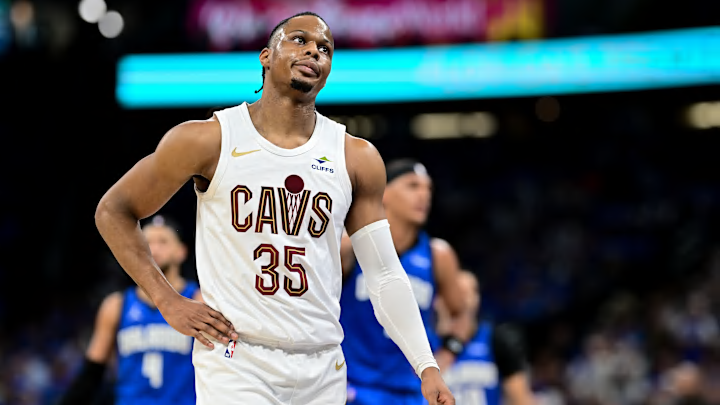Despite not making a roster move yet this offseason, the Cleveland Cavaliers cannot deny a desperate need to improve the lineup.
This summer, the Cavaliers hired an all-new coaching staff and re-signed Donovan Mitchell to a three-year, maximum extension. The two largest areas of need have been met, and now the focus must shift to upgrading the nightly rotation.
Since Spida's extension, though, the offseason has been silent outside of rumors and speculation. While Mitchell showed a willingness and excitement to stick around in the Land, his three-year deal includes a player option in 2027, and the Cavs must be prepared for a similar negotiation ahead of that decision. Cleveland has extended their runway to build a contender around Mitchell, but leaving this offseason with no tangible roster improvements wastes a year to do that.
Acquiring Mitchell cost the Cavs every available first-round draft pick for the rest of the decade, meaning the team's trade assets are highly limited. Unless Cleveland includes a 2031 first-rounder, trading for upgrades will cost a rotational player and salary filler. Given a reluctance to part ways with any of the core four, none of the supporting cast can be considered untouchable.
The latest reports surrounding the Cavaliers center around the future of Isaac Okoro in the wine and gold. Cleveland's 2020 first-round pick has been a lingering question over the franchise since the two parties could not come to terms on a contract extension last offseason. With Okoro now in restricted free agency, there is only one answer that feels like a matter of time before it comes to fruition.
The Cavaliers must move on from Isaac Okoro this summer
At 23 years old, Okoro has shown steady development and a growth mindset in every season. The defensive wing is often assigned the task of defending the opponent's greatest scoring threat, whether it is a shifty scoring guard or a modern point forward. In the playoffs, Okoro often guarded Paolo Banchero or Franz Wagner in the first round and one of Jaylen Brown or Jayson Tatum in the second.
While Okoro's strength and gritty playstyle allow him to play bigger than his 6-foot-4 size should allow, the Cavaliers' lack of any reliable big wing will inevitably cost them a hefty sum. Adding a big 3-and-D wing to run alongside Cleveland's undersized backcourt could unlock much of the Cavs' remaining potential.
Finding a new team for Okoro appears to be the eventual result this summer, but the timetable has more questions than answers at this point. Cleveland has been linked to Brooklyn Nets wings Dorian Finney-Smith and Cameron Johnson, but a sign-and-trade would hard cap the Cavs at the first tax apron. Thus, chasing a high price forward could be a complex task. Acquiring an elite shooter such as Johnson is possible, but it is not as simple as a one-for-one deal.
Still, with Cleveland's conference rivals chasing the reigning champs Boston Celtics, the Cavs cannot sit idle and expect Okoro to play a role he is not meant to fill. Even if it requires the Cavaliers to attach extra salary and second-round draft compensation to Okoro, they must make an upgrade. Cleveland's wealth of hidden talent in the G League and Summer League can offer low-cost replacements as end-of-bench players if the team must consolidate talent for an overall improvement.
Although Okoro has developed every season, his undersized stature limits his impact on the wing. Offensively, Okoro's growth has only come during the regular season, too. In the postseason, Okoro connected on 25.7 percent of his three-point attempts after a career-high 39.1 percent in the regular season. In the third year with the core four intact, regular season production will mean nothing if another early playoff exit befalls the squad.
Unfortunately, the penalties under the new Collective Bargaining Agreement have added another layer of difficulty in any move with Okoro. The Cavs are near the first apron cap that would trigger following an Okoro move, and ESPN insider Brian Windhorst's latest interview with ESPN Cleveland does not inspire much confidence the Cavaliers can make a move happen.
With the complexities and restrictions involved in a sign-and-trade, moving Okoro now is a year too late. Though the Cavs could not predict the restrictions that would arrive back then, sign-and-trades have always been a complicated financial mess to navigate. Failing to extend Okoro last summer should have been the first step in making the trade before this summer.
The Cleveland Cavaliers must move on from Isaac Okoro one way or another.
